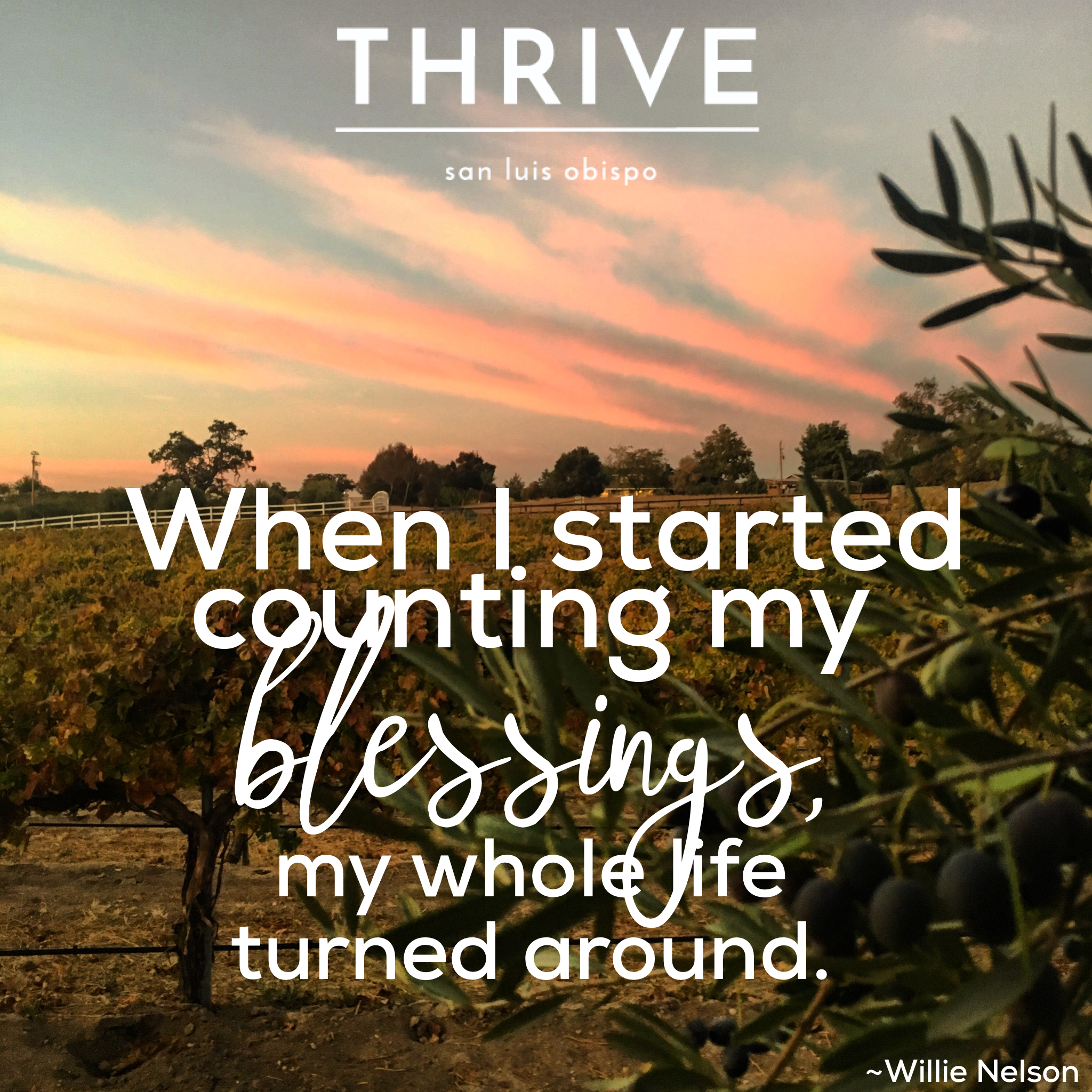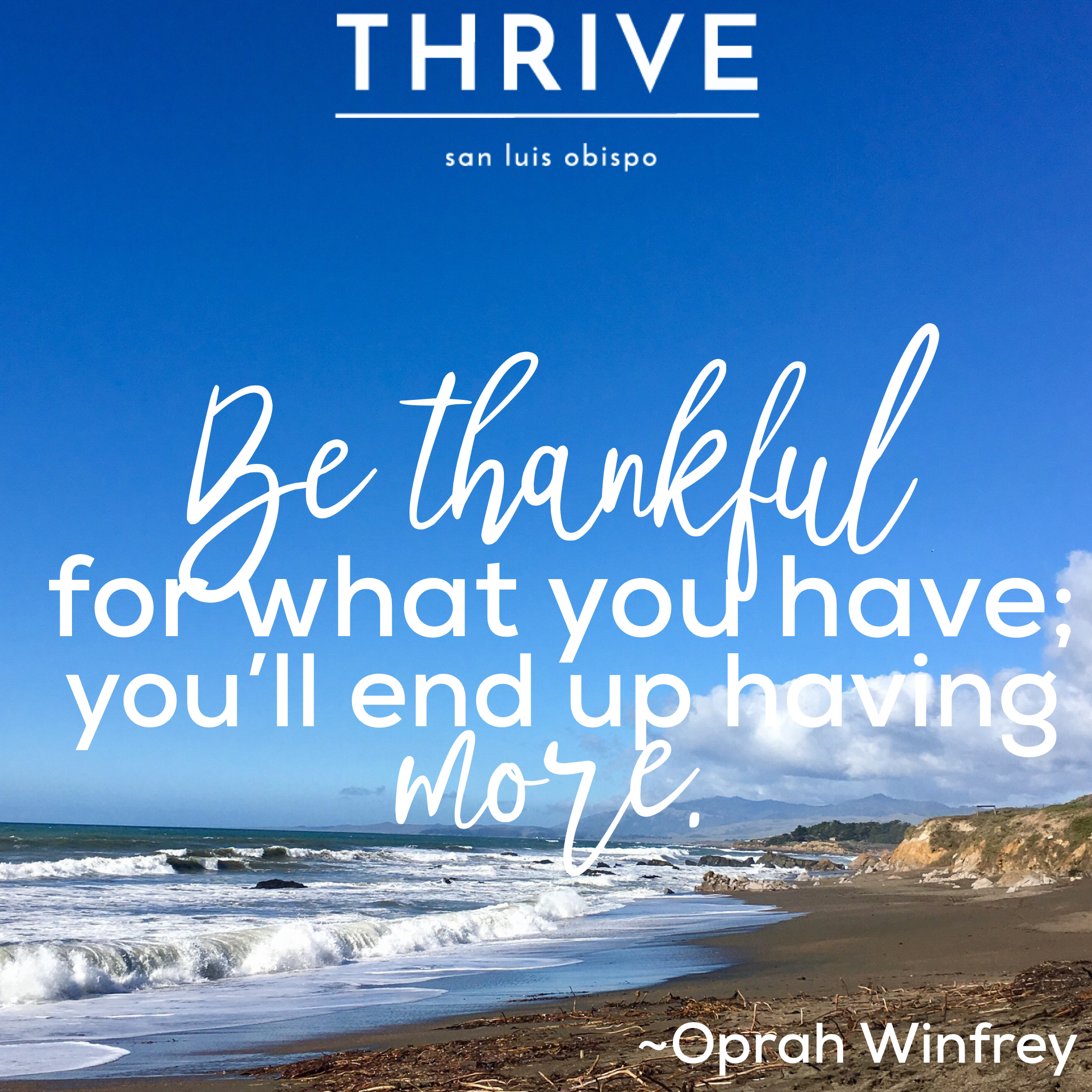“When I started counting my blessings, my whole life turned around.” ~Willie Nelson
A Month of Gratitude
This November, we are practicing a month of gratitude. Each Monday, we want to share a new gratitude practice with you! Ongoing research suggests that gratitude activities may improve life satisfaction (Seligman, Steen, Park, & Peterson, 2005). Last week we looked at how you score on the Gratitude Questionnaire. Today, we are going to introduce you to the most simple option of all the gratitude practices: the gratitude list.
The Gratitude List
Practicing gratitude includes acknowledging the positive aspects of one’s life. This may include listing the good things that have or are happening in life, as well as identifying those important people in your life. A gratitude list is a simple list of those people and things that you are grateful for. Many research studies have included writing down a gratitude list at the end of each day. A gratitude list helps you reflect on the day with a positive lens, reviewing the events of the day and looking for those things that you are most grateful for. Writing things down helps you shift your thinking and memory and also gives you an ongoing list to reflect on.
Simplicity is Key
Researchers have found that you do not need to make a long list of what you are thankful for, but instead found that the shorter the list, the easier it is to practice gratitude. A recent study found that it was easier for people to remember and write down two acts in which people close to them did something for which they should be thankful than it was to think of six (Puente-Diaz & Cavazos-Arroyo, 2016).
We Challenge You
So today, we are suggesting that you try writing down two things you are thankful for at the end of the day. They don’t have to be epic. It could be something as simple as being thankful for having the modern conveniences of electricity and running water, or feeling grateful for the friendly smile of your barista as they handed you a hot beverage. You can keep a notepad beside your bed, or you can simply type them into your phone. If you have a planner, you can create a space to write your gratitude list down each day. Have a journal? You could keep a running list on the front or back page. Maybe you’re not so good at remembering? That’s ok! Try a post-it note on your bathroom mirror and leave a sharpie on the counter; you can add to your list when you brush your teeth every night! We challenge you to try this for a week. It’s ok if the same things come up each evening – the goals is to end your day thinking about those two positive things.
Sounds too simple to be true? Try a gratitude list this week and see how it goes!





